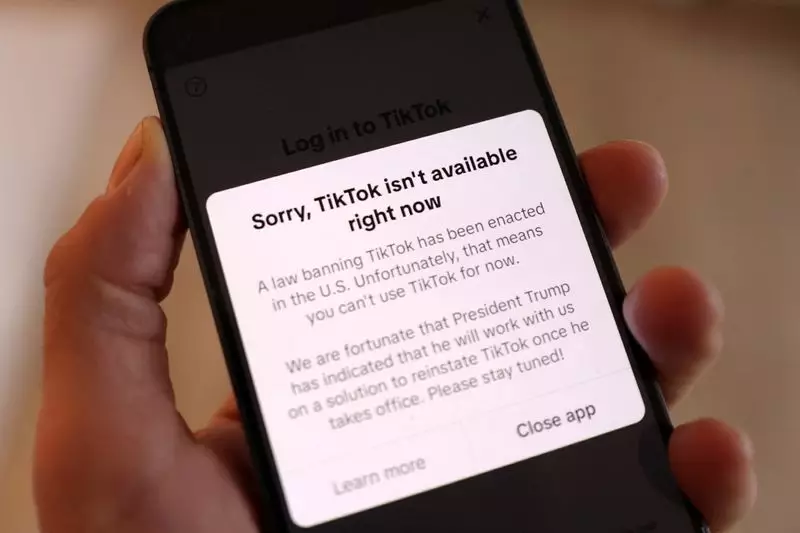The popular short-video app TikTok continues to exist in a limbo state as its availability in the U.S. app stores remains hindered. After President Donald Trump issued an executive order to delay the enforcement of a ban for 75 days, questions about the app’s future only intensified. This decision followed closely after a legal framework suggested that ByteDance, TikTok’s Chinese parent company, must either divest its American operations or face a significant ban based on national security concerns. As uncertainty looms around the app’s status, this situation highlights the complexities involved in navigating international digital markets.
Despite the executive order, TikTok’s functionality was temporarily restored after Trump’s assurance that both TikTok and its partners would avoid severe penalties for continuing operations in the U.S. However, the application has yet to be reinstated in the Google Play and Apple App Store. The current impasse may stem from both companies awaiting more definitive legal protections before they can comfortably reintegrate TikTok into their platforms without risking severe repercussions. Messages from both app stores explicitly state that TikTok and associated ByteDance applications remain unavailable due to pressing legal matters, creating an additional layer of confusion and apprehension among users.
In the broader context of these developments, former Treasury Secretary Steven Mnuchin recently expressed his interest in investing in TikTok, citing challenges in negotiations with China. He acknowledged his original bid had been paused but remained optimistic about finding a pathway to restructure the app’s ownership. Emphasizing the desirability of TikTok, which he referred to as a “terrific business,” Mnuchin highlighted a vision to transition the technology away from ByteDance. This perspective reflects a growing sentiment among investors regarding the necessity to sever ties with the Chinese parent company to ensure TikTok’s privileged standing within the U.S. market.
Bill Ford, CEO of General Atlantic—a notable investor in TikTok—echoed the sentiment that alternative avenues for redefining TikTok’s ownership structure exist without a full sale. Notably, ByteDance is already predominantly owned by institutional investors, with approximately 60% of its shares held by entities like BlackRock and General Atlantic. The insights from Mnuchin and Ford give rise to a potential pathway for TikTok to navigate its future in the U.S. by amplifying its existing non-Chinese ownership rather than resorting to an outright sale, which could further complicate its operations.
The fate of TikTok in the U.S. is emblematic of the broader tensions between geopolitical interests and the rapidly evolving landscape of digital technology. As stakeholders grapple with the implications of ownership, regulation, and users’ loyalty, TikTok’s ongoing saga will undoubtedly shape the contours of international tech operations for years to come. The intersection of politics, market forces, and public sentiment is not just a backdrop to the app’s journey but a dynamic framework that will dictate its sustainability in one of the world’s largest digital marketplaces.

